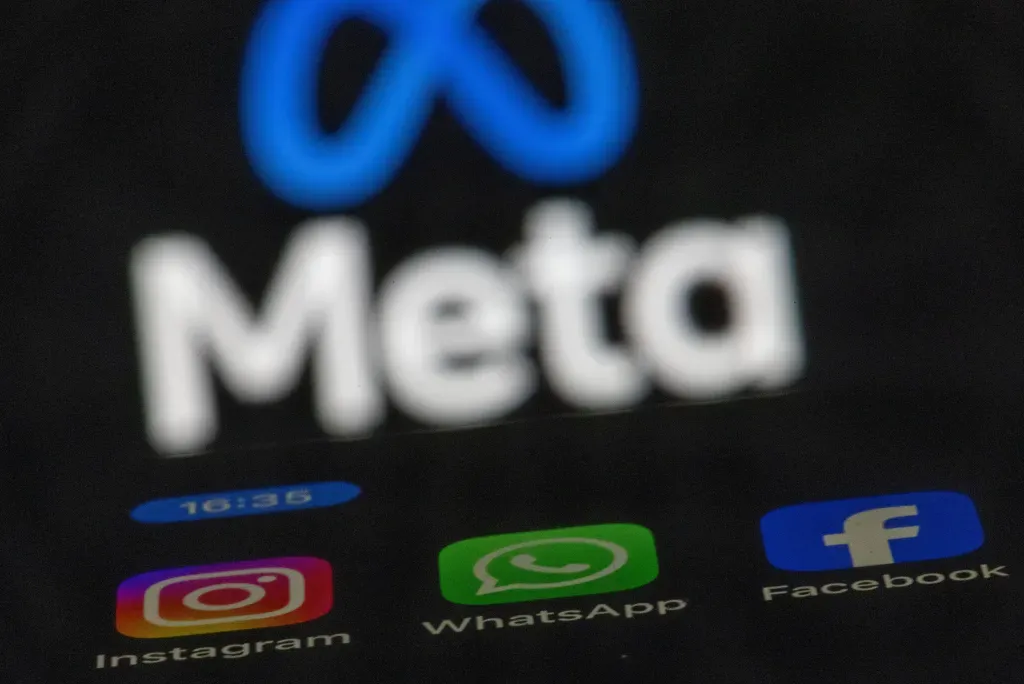UK Tribunal Greenlights $2.7B Antitrust Lawsuit Against Meta Over Data Practices
Meta faces $2.7B lawsuit over unfair data collection practices from UK users.

UK Tribunal Approves $2.7B Class Action Lawsuit Against Meta for Data Exploitation
Meta, the parent company of Facebook, Instagram, and WhatsApp, is facing a significant legal challenge in the United Kingdom. A class-action antitrust lawsuit, led by competition law expert Dr. Liza Lovdahl Gormsen, has been greenlighted by the UK’s Competition Appeal Tribunal. The lawsuit alleges that Meta unfairly exploited UK users’ personal data in a "take-it-or-leave-it" manner, and demands damages of at least $2.7 billion. This legal battle comes amid mounting scrutiny of Meta's data practices and its dominance in the social media market.
The Basis of the Lawsuit: Data Collection and Market Dominance
At the heart of the lawsuit is the claim that Meta’s practices of collecting and processing user data for advertising purposes are unfair to users. Lovdahl Gormsen, who is leading the class-action lawsuit, argues that Meta uses its dominant position in the social media market to force users into an “unfair bargain.” According to the complaint, UK users are required to give up significant amounts of personal data, including “Off-Facebook Data,” as a condition of accessing Meta’s services. This data collection occurs not only on Meta’s platforms but also through third-party websites and advertisers, who track users via Meta’s cookies and pixels.
The lawsuit covers 46 million UK users of Meta services between February 2016 and October 2023, and it seeks damages ranging from £2.1 billion to £3.1 billion (around $2.7 billion to $3.8 billion USD). The claim argues that Meta’s monopoly over social networking leaves users with little to no choice but to accept its data collection terms.
Meta’s Failed Attempts to Dismiss the Lawsuit
The lawsuit has been in the works for nearly three years. Dr. Lovdahl Gormsen initially filed the claim in January 2022, and Meta has twice attempted to have the case dismissed, both times unsuccessfully. In the latest twist, the UK tribunal has allowed the collective claim to proceed, which means the case is now set for trial. The legal notice now includes instructions for affected users who may wish to opt out of the lawsuit if they don’t want to be part of the collective claim.
What makes this case significant is the "opt-out" nature of the collective action. All UK Facebook users are automatically included in the lawsuit unless they choose to opt out, meaning they do not have to take any action to be included in potential damages.
Meta’s Data Collection Practices Under Scrutiny
Lovdahl Gormsen’s lawsuit argues that Meta has exploited the vast amounts of personal data users provide by tracking them both on Meta-owned platforms and on third-party websites. Facebook users are unaware that Meta is creating multiple data points on them through third-party interactions that have nothing to do with Facebook itself.
“Imagine yourself as a Facebook user,” Dr. Lovdahl Gormsen explained, “You may be aware that your data will be used by Facebook.com. But what the pixels are doing is when you use a third-party website, that of course has nothing to do with Facebook. That means Facebook has created many, many, many more data points on you than you actually knew you’d signed up to.”
This extensive data collection has been a central point of contention in numerous controversies surrounding social media platforms, from the Cambridge Analytica scandal in 2018 to ongoing concerns about privacy violations by platforms like TikTok.
Why This Lawsuit Matters
This case is notable for a number of reasons:
- Size of the Damages: The $2.7 billion in damages being sought is larger than some of the biggest data violation fines ever levied in Europe. For example, Meta was hit with a $1.3 billion fine in May 2023 for data violations.
- Valuing Personal Data: The lawsuit seeks to put a tangible value on personal data, which has become a contentious issue. If successful, it could change how companies are held accountable for the ways they collect and use personal information.
- Setting Legal Precedent: If this lawsuit succeeds, it could set a crucial precedent for other antitrust cases and class-action lawsuits against tech giants. This could lead to a shift in how competition law is applied to issues surrounding data exploitation.
According to Kate Vernon, a partner at Quinn Emanuel, which represents Lovdahl Gormsen, this case represents a “groundbreaking” step in competition law. “It sets a legal framework for approaching this pivotal matter and represents a significant shift in how we address the associated critical issues,” Vernon stated.
The Implications for Meta and the Tech Industry
Meta’s legal woes in the UK come as the company faces increasing pressure from regulators globally. In the U.S. and Europe, Meta has been facing antitrust investigations, particularly around the way it dominates digital advertising and collects user data. The outcome of this UK lawsuit could have wider implications for Meta’s operations, especially if it sets a precedent for how antitrust law is applied in relation to data privacy and monopolistic behavior.
Meta has yet to comment on the latest legal developments, and the company’s legal team may mount an appeal or attempt to settle the case before it goes to trial. But given the growing backlash against tech giants over data privacy concerns, Meta will likely face an uphill battle in defending its practices.
The Future of Data Protection and Antitrust Lawsuits
The outcome of this case could have broad implications for how companies like Meta collect and monetize user data. If the lawsuit succeeds, it could inspire more class-action lawsuits targeting the business practices of tech giants, especially as data privacy concerns continue to rise.
Moreover, it may lead to stricter regulations on how companies handle personal information, which could reshape the entire data-driven economy that many tech companies, including Facebook, rely on.
As more users become aware of how their data is being used, and as the government becomes more vigilant in regulating data privacy and competition, we may see a shift toward greater transparency and fairness in how companies like Meta operate in the digital space.



